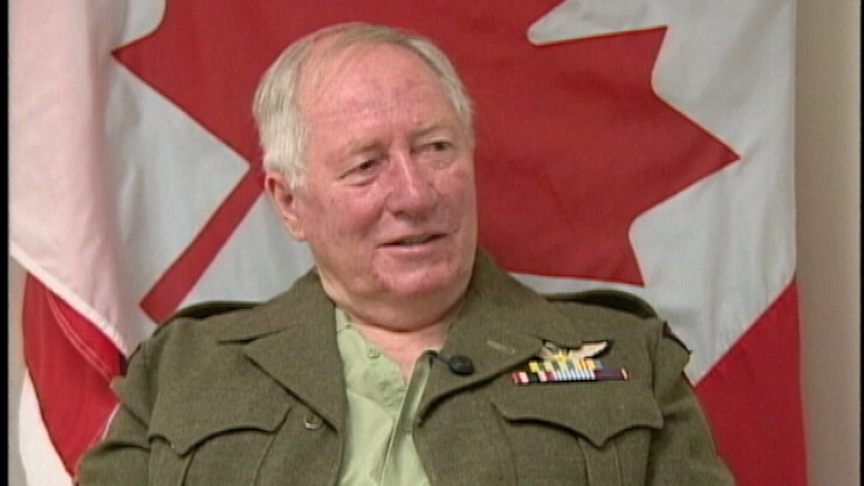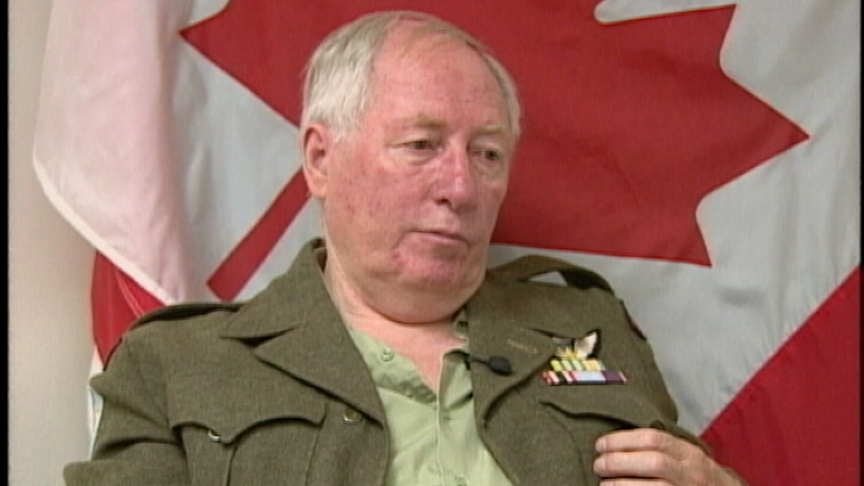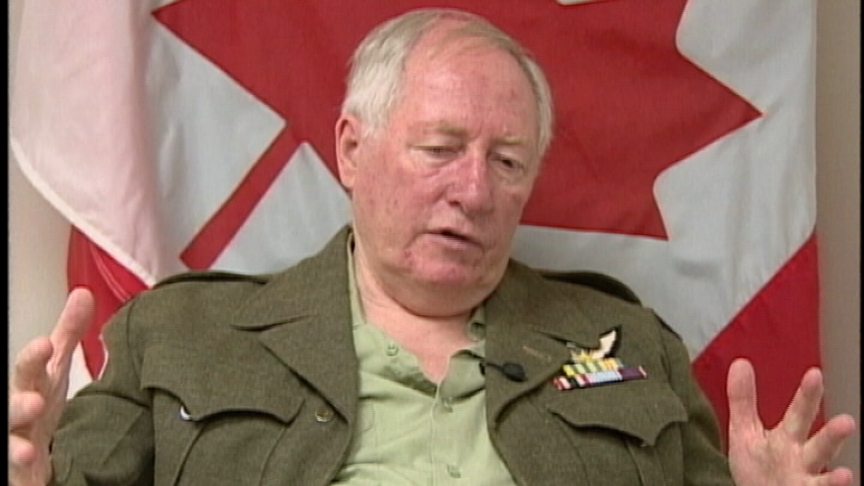Infantry Platoon in the Field
Heroes Remember
Infantry Platoon in the Field
Transcript
The infantry sections and platoons have stretcher bearers.
When there is somebody wounded they drag them out
whether by stretcher or carrying them back to the Regimental Aid Post,
or they may be able to hobble or walk themselves back to the
Regimental Aid Post which is somewhere, not, it’s not out in the
front line where the sections are, but they’re in a strategic area.
They come back to the Regimental Aid Post.
The Medical Officer is there, does what he can for them
and then this is where the Field Ambulance comes in.
Field Ambulance has a stretcher bearer and a driver
and a jeep ambulance always at the Regimental Aid Post.
The wounded are loaded onto two stretchers onto the jeep ambulance
and taken from the Regimental Aid Post back to the section
I talked about a little earlier. It’s called CCP, Casualty Collecting Post.
So it comes from the Regimental Aid Post to the Casualty Collecting Post.
Where again, some of the Medical Officers who you spoke with
probably talked about this. There’s a Medical Officer, generally a captain,
and a sergeant who is an MA and a lot of stretcher bearers.
Anyway, they look after the, they have another look at the wound,
at the wounded. They may change the dressing.
They may start to feed him plasma or blood.
They may change the dressing and so on, and then if he’s well enough.
If he isn’t well enough they may have to keep him there for a while.
If he’s well enough and able to travel,
he travels from the section that I talked about,
the CCP, Casualty Collecting Post,
by a motor ambulance with four stretchers,
two on one side up and down, two on the other side up and down,
and there, from there he’s taken to the ADS.
I never worked in an ADS. I don’t know what they did down there
but they did something similar to what we did at the Casualty Collecting Post.
And I suspect that they were taken from the Advanced Dressing Station,
either back to the famous M.A.S.H. that we’ve heard about
in the movies over the years, or flown to Japan depending on
what was wrong with the person, what the injury was,
what sort of medical attention that he needed.
Description
Mr. Pike explains the components that made up the infantry platoon and how they dealt with the wounded.
Leslie Pike
Mr. Pike was born January 8, 1933 in Carbonear, Newfoundland. An only child, Mr. Pike left school at age 15 and worked as a clerk at a local hardware store to help support his mother and grandmother. Mr. Pike had a great desire to leave Newfoundland and decided to join the army. On October 23, 1950, at age 17, Mr. Pike travelled to St. John’s recruiting station. He became a stretcher bearer with the Regular Force 25th Canadian Field Ambulance Regiment, and served during the Korean War. After the war, Mr. Pike stayed in the service for an additional six years before returning to civilian life.
Meta Data
- Medium:
- Video
- Owner:
- Veterans Affairs Canada
- Duration:
- 3:18
- Person Interviewed:
- Leslie Pike
- War, Conflict or Mission:
- Korean War
- Branch:
- Army
- Units/Ship:
- 25th Canadian Field Ambulance RCA Medical Corp
- Occupation:
- Stretcher Bearer
Related Videos
- Date modified:





